Building the Knowledge Center!
2015 was the anniversary year for Volga-Dnepr Group. The company president A. Isaykin declared it the year of knowledge. That year gave the start to one of the company 2020 most important strategic projects – “The aviation industry knowledge center teaming up best airfreight experts”.
– I would compare the Knowledge Center with a bee hive, – said Alexey Isaykin. – The employees are like bees collecting knowledge nectar, which when necessary becomes food. I see the Knowledge Center as a buzzing busy place which people use to preserve, share and gain knowledge for their operational needs.
The president emphasized that in the first place the Knowledge Center was meant for the company customers, then – providers, scientists, researchers and, of course, the company employees.
– I am sure that the operating Knowledge Center will make the company more attractive and potentially beneficial for our customers, – noticed A. Isaykin. – On the other hand it will make us more competitive on the market, and not only on airfreight market.
The project started with global knowledge elicitation on all functions and processes, first initiated in VDTM with the leader Alexey Zimin, the director on business development. Then the initiative was cascaded to AirBridgeCargo Airlines and Volga-Dnepr Airlines with the project group leaders Rodion Nelidov and Fedor Novikov correspondingly.
“The bees” collecting the precious “knowledge honey” are the people who attended a special training and got the status of the Knowledge Center technologists.
This is what some of them shared about their work with experts.
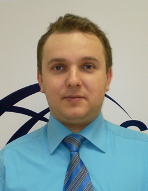 Michael Chernopyatov, the head of the commercial schedule support department, ABC:
Michael Chernopyatov, the head of the commercial schedule support department, ABC:
– I participated in the pilot project on knowledge elicitation in VDTM. I remember how we were excited getting down to work. Everything was organized on the principle “think – do – make a mistake – think it over – correct – do”. This trial and error method worked well for the result. Fast and efficient!
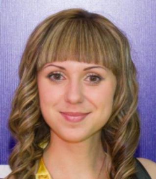 Tatiana Kozlova, the head of the labour safety department, Volga-Dnepr Airlines:
Tatiana Kozlova, the head of the labour safety department, Volga-Dnepr Airlines:
– Watching the experts was interesting: as it is often the case with something new and unknown, some of the experts were suspicious about the project and interviews. But as we were progressing on the project explaining its objectives and fulfillment plans they got more interested, active and motivated in sharing their experience, providing it with more details. I wish the project successful growth and maybe a bit earlier than planned fulfillment for the company to start utilizing its rich repository of knowledge!
Dmitry Tarasov, the leading specialist on certification, Volga-Dnepr Airlines:
– We learned how many professionals with profound and unique experience had been fostered in Volga-Dnepr Airlines. Their openness, enthusiasm and co-operation in reaching common goals truly impressed us.
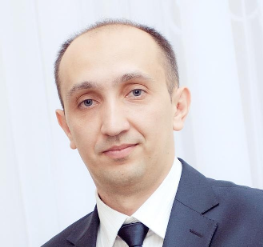 Oleg Omeljanenko, the head of flight safety and aviation accident prevention department, Volga-Dnepr Airlines:
Oleg Omeljanenko, the head of flight safety and aviation accident prevention department, Volga-Dnepr Airlines:
– An expert interview is a mini-project. Each one is different with its own specifics and subtleties. To conduct an interview is the tip of the iceberg. Its invisible part is proper completing of the knowledge map with its visualization in the special program – FreeMind.
Olga Pakhomova, the analyst, VDM:
– The project gave the technologists an opportunity to work with experts from the company foreign offices. This was the first experience requiring good command of English.
This is how the main project customers see its products: Denis Ilyin, the executive president of AirBridgeCargo Airlines, and Alexander Bashkov, the executive president of Volga-Dnepr Airlines.
– The Knowledge Center should have its “skeleton”, like a card catalogue in a library, – noticed Denis Ilyin. – There must be two main filters for the 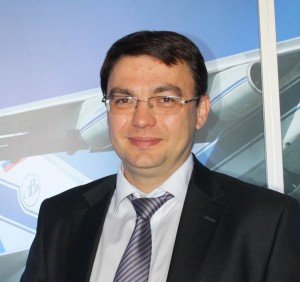 cards to get into this catalogue – they should be unique and in high demand. As for the knowledge relevant to aviation industry in general, this is our technical solutions and transportation experience. The customer will address the Knowledge Center to get the best solution and the best price for the goods to transport – and this should be the most efficient solution.
cards to get into this catalogue – they should be unique and in high demand. As for the knowledge relevant to aviation industry in general, this is our technical solutions and transportation experience. The customer will address the Knowledge Center to get the best solution and the best price for the goods to transport – and this should be the most efficient solution.
The Knowledge Base should also provide opportunity for statistical sampling, analytical research, conclusions on the past or present condition, forecasts.
The company needs the Knowledge Center for at least two reasons:
1) diversification of our activities;
2) monitoring changes in logistics market to be able to adequately react to these changes correcting our services.
–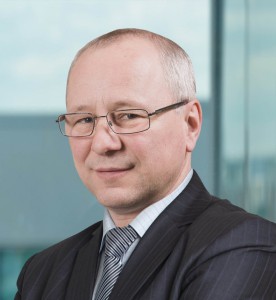 The knowledge Center should cover the company commercial and operational activities,– said Alexander Bashkov. – That is how we sell our services (the customer knowledge files), how we perform flights (the aviation personnel knowledge files), and also how we maintain and support transportation (transportation management knowledge files). The data base should be well-structured to provide easy search for information. Another requirement is to separate the data base maintenance from operational activities. There should be specialists to see to it. The Knowledge Center should consolidate both – the company and the industry experience. As an executive officer I would also require personified training based on the collected experience – when everybody learns what he needs.
The knowledge Center should cover the company commercial and operational activities,– said Alexander Bashkov. – That is how we sell our services (the customer knowledge files), how we perform flights (the aviation personnel knowledge files), and also how we maintain and support transportation (transportation management knowledge files). The data base should be well-structured to provide easy search for information. Another requirement is to separate the data base maintenance from operational activities. There should be specialists to see to it. The Knowledge Center should consolidate both – the company and the industry experience. As an executive officer I would also require personified training based on the collected experience – when everybody learns what he needs.
Here is how the key project audience – the external customers sees the Knowledge Center. Sergey Kravchenko, the president of Boeing Russia, was the first to ask.
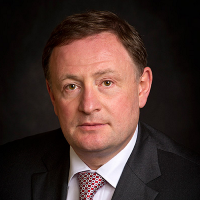 – What is essentially necessary is the global and reliable support of aviation logistics, – noticed Sergey Kravchenko. – Also, analytics meant to monitor the customers demand, knowledge on how the Boeing brand could contribute to the development of the Volga-Dnepr brand and ABC, and vice versa, how ABC contributes to empowering the B747-8 airplane brand and the Boeing company in general. The knowledge base should also cover finances, HR management, IT. Its interface should provide access to Volga-Dnepr knowledge for other companies. It should be the place where aviation industry experts could share their experience.
– What is essentially necessary is the global and reliable support of aviation logistics, – noticed Sergey Kravchenko. – Also, analytics meant to monitor the customers demand, knowledge on how the Boeing brand could contribute to the development of the Volga-Dnepr brand and ABC, and vice versa, how ABC contributes to empowering the B747-8 airplane brand and the Boeing company in general. The knowledge base should also cover finances, HR management, IT. Its interface should provide access to Volga-Dnepr knowledge for other companies. It should be the place where aviation industry experts could share their experience.
Finally, here are some words from Galina Isaykina, the project manager:
– It was a challenging year for the project team members. The project idea, its realization, required resources were discussed with them in detail and not once. To create something out of the company knowledge and experience which could be in demand for internal and external customers turned out to be both – exciting and important. The Book of Recognition is one of the launched initiatives. It will comprise nearly 500 key company events covering the period of 25 years. 300 expert interviews on the main processes of charter and regular transportation have already been conducted, resulted in created knowledge maps. We are now preparing a series of live knowledge seminars “Lessons learned”. The list of initiatives can be continued, but the most important thing we managed is to “tune” the employees’ attitude to knowledge sharing, showing them that is not only useful but also profitable. We all will benefit if our customers are happy flying with us.
As the project manager I can’t help praising the project team members. We often act as a single unit – dynamic in discussing problems, finding solutions, debating, learning from each other … and enjoying our intellectual communication!
Let the new 2016 be the next bright period for our project energized with our heartfelt devotion!




